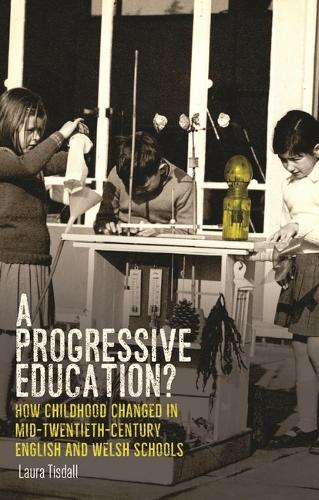
A Progressive Education: How Childhood Changed in Mid-Twentieth-Century English and Welsh Schools
(Paperback)
Available Formats
Publishing Details
A Progressive Education: How Childhood Changed in Mid-Twentieth-Century English and Welsh Schools
By (Author) Laura Tisdall
Manchester University Press
Manchester University Press
1st November 2023
United Kingdom
Classifications
General
Non Fiction
History of education
370.942
Physical Properties
Paperback
296
Width 138mm, Height 216mm, Spine 16mm
344g
Description
A Progressive Education argues that ideas about both childhood and adolescence were transformed in English and Welsh schools after WWII. Covering the period 1918 to 1979, this book shows that by putting childhood at the centre of the history of education, we can challenge the stories we tell about how and why schooling itself changed. It has been suggested that the dominance of 'progressive' education after 1945 led to a backlash against permissive attitudes to pupils in both Western Europe and the United States. But British child-centred education, in alliance with developmental psychology, actually shaped a more restrictive and pessimistic image of childhood. Drawing on an extensive range of sources that illuminate teaching practice, from school logbooks to oral histories, this book will be crucial not only for historians and sociologists of modern Britain, but for education professionals and policy-makers. -- .
Reviews
'Laura Tisdalls recent book is an alternative, perhaps revolutionary, history of progressive education. Progressive education is usually associated with the left, social justice, and social progress. This book argues instead that progressive education in English and Welsh schools was only ever half-implemented, with dismal consequences for the groups for whom it was deemed most suitable. [] A Progressive Education is bitter tale of the unintended consequences of when theory and policy migrate into experience and practice. Its also one of the best histories of education I have read in a long time.'
ESRC
'This book provides a clear indication of both the competing elements of education in this period and the changes that took place in educational settings. Alongside this, Tisdall notes the challenges facing both students and staff class, race, disability, and gender and places the school, and the children and teachers, at the heart of the community, and childrens lives. This work will be an excellent source for historians of education and childhood in England and Wales in the post-war period, and adds a unique perspective to these histories during the twentieth century.'
Family and community history
'Laura Tisdalls engaging monograph offers a detailed account of the emergence and decline of a particular vocabulary of progressive, child-centred educational theory and practice in the long middle years of the twentieth century. Placing the theoretical frameworks through which children and adolescents were understood at the centre of her work, she is able to draw conclusions about the class and gender relations of teachers to their children.'
Twentieth Century British History
Author Bio
Laura Tisdall is a Leverhulme Early Career Fellow in History at Queen Mary University of London
